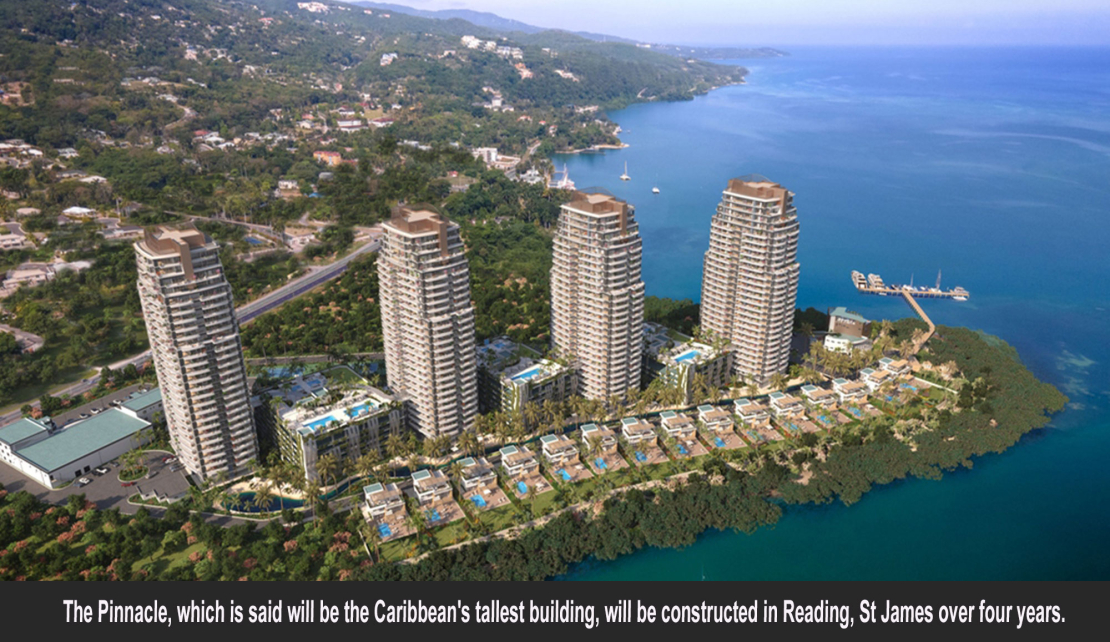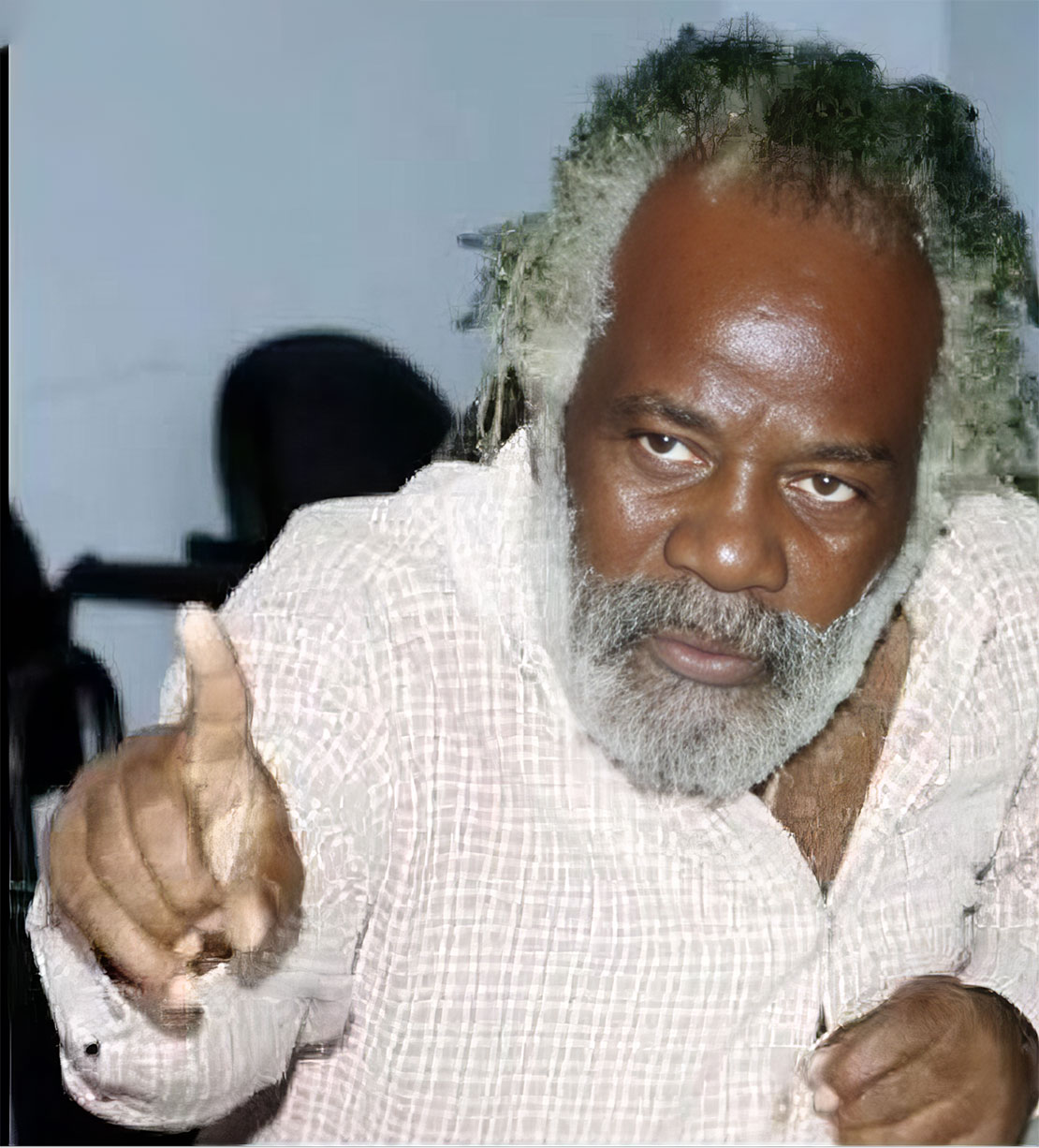JAMAICA | The Race for Space in Montego Bay - Who decides the spoils?

MONTEGO BAY, Jamaica, February 9, 2024 - The election season is upon us, a season of giving and receiving and as we all know the essence of politics it is all about who gets what, when, and how.
Therefore, let us clear the table of all bourgeoise pretenses, all this false display of patriotism and philanthropy and examine the concrete reality of existence, the struggle for food and space.

The outcomes of these elections will determine the allocation of Montego Bay's coastal properties, making them critical in deciding who gets what, when, and how.
Let us not fool ourselves it is the elite who hold the primary power, as those who fund political parties ultimately shape public policy and influence the distribution of resources.
While sections of the masses are prepared to mortgage their birth right by selling their votes for five Thousand Dollar bills wrapped up in T-shirts, as the pretentious middles class and self-service educated class, a paralyzed force and silent accomplice in celebration of their own demise.
It is essential to recognize the potential long-term consequences of such transactional politics. The verse from Deuteronomy 28:43-44 serves as a stark warning that, “Foreigners who live in your land will gain more and more power, while you gradually lose yours.
They will have money to lend you, but you will have none to lend them. In the end they will be your rulers”.
National assets are being dangled as in a Chinese auction to entice the favour of the powerful, where the probability of winning depends on the relative size of a participant's bid or those who have contributed most to the political directorate.
In this patron client transactional politic garbage and sewage has become a primary focus of attention as the recent call for the divestment the municipal landfill and the Bogue Sewage Ponds situated on the most prime piece real estate in Montego Bay is placed on the agenda.
Then there are other prime pieces of real estate situated on Howard Cooke Boulevard, the new growth corridor, which includes the Montego Bay Craft Market, the Peoples Arcade, the River Bay Fishing Beach and not mention the Bogue informal commercial development.
All these properties are on the auction block and will be divested now doubt after the elections, putting at risk of eviction the current occupants.
As we approach this pivotal moment, it is crucial for the people of Montego Bay to be vigilant and discerning. The decisions made during these elections will have lasting implications for the distribution of resources, the development of the region, and the well-being of its inhabitants.
The power elite must be held accountable for their actions, and the electorate must demand transparency and fairness in the political process.
“ I am not surprised that Tourism Enhancement Fund Chairman should say that the decision to establish the National Water Commission facility was made without the input of stakeholders from the resort town. That is not true. ”
Let me warn the power elite of Montego Bay to recognize the potential for conflict and instability if systemic injustices are not addressed. Let us be remined of the mantra coexistence or no existence at all and that the alternative to peaceful co-existence will be mutual destruction.
In a recent media report, Deputy Mayor Councillor Richard Vernon has called upon the government to consider relocating both the Retirement Dump and Bogue Sewage Treatment plant in order to facilitate the rapid expansion of Montego Bay. According to Vernon, the removal of these facilities will have a positive impact on the city's notorious traffic problem.
While the recommendation seems commendable, especially with regards to the relocation of the Municipal landfill, there are crucial considerations that must be addressed.
While acknowledging the Deputy Mayor's intentions, it's important to approach these proposals with a critical eye. The political landscape often raises questions about the allocation of resources and the interests being served.
As plans for the divestment of Montego Bay's coastal properties unfold, it becomes crucial to inquire about the potential beneficiaries of the prime real estate that will be made available. While Councillor Vernon is recognized as an honest and principled individual, it's essential to remain mindful of the broader political and economic implications of such decisions.
Moreover, it is essential to remember the micro and small business sector, as their struggle for space and livelihood must not be overlooked amid negotiations for the city's expansion. I wish to remind readers that the Deputy Mayor is the Councillor for downtown Montego Bay, the urban centre.
“ I was in the room when the National Water Commission's Environmental Impact Assessment was presented to the people of Montego Bay. During this presentation, the consultants made a compelling case for adopting the lagoon system over a mechanical one and provided the rationale for the current location of the facility. ”
As well as the more than 600 vendors and higglers who peddle their wares on the sidewalks of St. James and Barnett Street, The displaced small business persons at the shoe market, are also constituents whose well-being and livelihoods must be considered in the decision-making process.
In the rush to meet the demands for developers interest for space, it is imperative to consider the impact of the removal of the Bogue Sewage Treatment Plant on the tourist industry and the overall health and well-being of the citizenry. It is worth noting that less than fifty percent of households in the greater Montego Bay area are connected to the grid.
The maintenance of the Blue Flag global standard for water quality, which is crucial for the city's tourist industry, must be a priority. The Blue Flag certification signifies a clean coastline and transparent ocean water, and it is vital for maintaining the competitiveness of the hotel industry and the overall appeal of Montego Bay as a tourist destination.
In Godfrey Dyer’s anxiety to assauge the appetite of the mighty for addcitional space in the city, I am not surprised that the Tourism Enhancement Fund Chairman should say that the decision to establish the National Water Commission's sewerage plant facility was made without the input of stakeholders from the resort town. That is not true.
I was in the room when the National Water Commission's Environmental Impact Assessment was presented to the people of Montego Bay. During this presentation, the consultants made a compelling case for adopting the lagoon system over a mechanical one and provided the rationale for the current location of the facility.
It is essential to recognize that decisions regarding critical infrastructure are often complex and involve careful consideration of various technical, environmental, and logistical factors.
While stakeholder input is valuable and should be sought whenever possible, it's important to acknowledge that the decision-making process often involves weighing multiple considerations to arrive at the most viable and sustainable solution.
-30-
